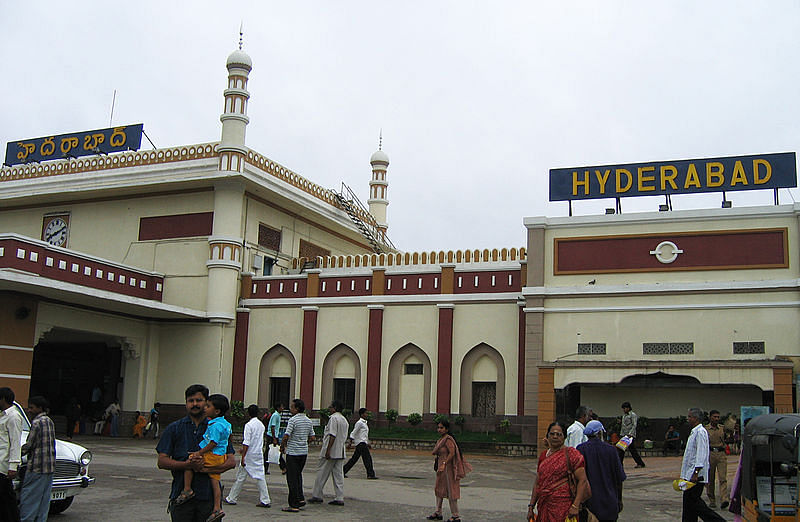The caste divide is equally strong in India’s ‘progressive south’, and lovers equally unsafe.
Bengaluru: Bandi Siva Deepthi Reddy of Telangana is scared for her life. She recently married the man she loved, Murahari Vijay Kumar, but he belongs to another caste and her father has been sending her death threats. She now wants police protection.
The ‘honour killing’ earlier this month of Perumalla Pranay, from Miryalaguda in Telangana, in front of his pregnant wife has left inter-caste couples scared.
The murder came two years after a Dalit man was hacked to death in public in Tamil Nadu – the attack caught on a CCTV camera – for marrying a woman from an upper caste. As you read this, a 20-year-old is recovering in Hyderabad after she was almost murdered by her father with a sickle, allegedly for marrying a Dalit.
Clearly, the richer and more educated south – generally held up as a model for the north – also seems to be guilty of a malaise that has fractured India’s social fabric for decades: The murder and harassment of young couples who choose love over the caste divide.
According to National Crime Records Bureau (NCRB) data, there were 71 reported cases of ‘honour killings’ in the country in 2016 and 192 in 2015.
Although Uttar Pradesh accounts for the bulk of the cases, Sanjoy Sachdev, a former journalist who runs the NGO ‘Love Commandos’ to help inter-caste lovers, said Telangana and Andhra Pradesh are quite bad too.
“We have been saying this for the last eight years,” he told ThePrint. “Cases don’t get reported, but now we are seeing some cases coming out,” he added.
Sachdev’s NGO, based in Delhi, attends to hundreds of calls every day from young men and women who allege that they are being hounded by their family or society
Also Read: As we debate Telangana caste killings, don’t excuse courts for fanning patriarchy
‘Divorce or die’
A Bengaluru-based software engineer married his girlfriend three months ago in a temple despite their parents’ objections about their different castes.
Shortly afterwards, the wife was dragged back home by her parents, and the engineer is no longer able to meet or talk to her. He now receives daily death threats through calls at odd hours from different numbers.
“One day, when I returned home from work, I found my door lock broken and house ransacked,” he told ThePrint, speaking on condition of anonymity because of the sensitivity of the issue.
“They (the people who broke in) had left a note asking me to file for divorce immediately,” he added. “I can’t sleep now. I sleep with a knife under my pillow. Is this what I get because I married for love?”
In 2016, a woman named Monica was killed by her family in Karnataka’s Mandya district after she refused to break up her inter-caste relationship with Narendra Babu.
Her family murdered her and hung her from a tree on 2 April 2016. The family even tried to destroy evidence by burning her body after convincing the village that she had committed suicide.
Also Read: Jat woman who married Dalit shot dead outside Rohtak court, 4 of family held
‘Ridiculous advisory’
“Telangana police say, if you want to love, take your family into confidence first, what kind of ridiculous advisory is this?” Sanjoy Sachdev of Love Commandos asked.
“Is it a crime to love? Did Goddess Parvathi seek the confidence of her parents to fall in love? It is a mockery of the system,” he added.
Another Delhi-based NGO, Shakti Vahini, has been fighting for a separate legislation to punish honour killings for the last decade.
According to advocate Ravi Kant, who heads the NGO, the country will have such a law very soon.
“(Earlier) The government took the stand that honour killing is murder and there is a law for it,” he said. “But in terms of honour killing, what is important is the personal security of the individual. Honour killing is a crime done by a group of people. So the law commission recommended a law in 2014.”
The Supreme Court is currently hearing a petition filed by the NGO seeking a different law.
The Law Commission’s draft Prohibition of Interference with Freedom of Matrimonial Alliance Bill is currently reported to be doing the rounds among states.
“As of now 26 states have confirmed that they need this legislation,” Ravi Kant added.
‘Existing law good enough’
However, Alok Prasanna Kumar, a senior resident fellow at the Vidhi Centre for Legal Policy, said the existing law was good enough to curb honour killings.
“Where it is failing is the fact that our police and criminal justice system do not have a good track record in prosecuting people,” he added. “Police don’t take action fast enough… The changes need to be made there first. Till then, no amount of laws is going to make any difference,” he added.
Prasanna Kumar has a point. The Tamil Nadu honour killing mentioned earlier, which occurred on 13 March 2016, stands as an example of justice delivered. For the first time ever in a case of honour killing, six convicts, including victim Shankar’s father-in-law, were awarded the death penalty by a trial court.
After her husband was killed while they were coming out a hospital following a check-up, Pranay’s wife Amrutha has demanded that her father be put behind bars. Telangana police have arrested him and six others for the murder, alleged to have been sealed with a Rs 1 crore ‘supari’.
